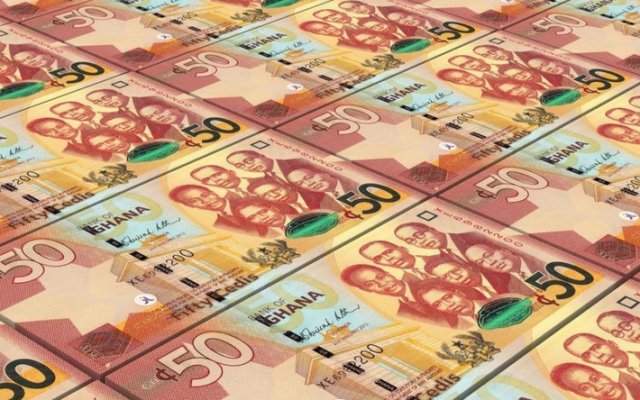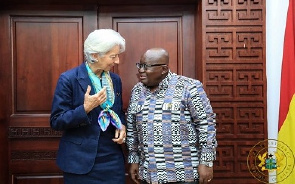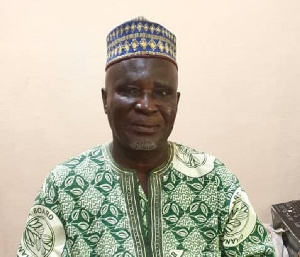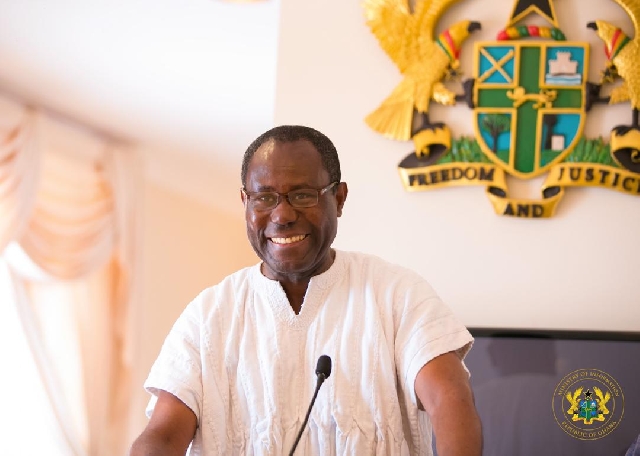BoG to inject $800m to stabilise cedi

The Bank of Ghana (BoG) says it will add a minimum of $800 million to the country’s reserves this month to stabilise the cedi against major international currencies, especially the dollar.
The Head of Financial Markets at the central bank, Mr Steven Opata, told the Daily Graphic that the accumulation of more dollars would help increase the net international reserve (NIR) to around $4 billion, enough to provide confidence in the system and help stabilise the free fall of the local currency.
Since January this year, data from the central bank show that the cedi has lost some 3.6 per cent of its value to the US dollar as the international investor community sold some of their investments in local securities and moved their funds overseas, partly causing the cedi to slide.
That caused some apprehension among the business community, prompting various private sector associations to urge the central bank to find a solution to the depreciation to help abate the impact on their operations.
In an interview on how the BoG was addressing the turbulence in the currency market, Mr Opata said one of the strategies it was adopting “is rebuilding reserves to face more systemic shocks that may come”.
“I am very optimistic that it will not be long before we see stability and some recovery in the cedi,” he said.
Cause of depreciation
He explained that BoG research indicated that the recent depreciation would normalise in days, as it was not caused by weak fundamentals and external shocks but by local sentiments that tended to correct with time.
“In this first quarter, the movement in the cedi is not caused by external factors because the external sector has been quiet,” he said, citing recent signals by the Federal Reserve (Fed) of the United States of America that it would be increasing its rates, a situation that usually negatively affected the currencies of emerging and frontier markets such as Ghana.
Last year, the BoG blamed the cedi’s increased vulnerabilities on hikes in Fed rates, which it said reduced non-resident investor appetite in government bonds, causing them to repatriate their coupons and maturities in ways that posed shocks to the local currency.
Mr Opata was confident that rebuilding the reserves was the best option to help assure the international community that the central bank was ready to respond through increased dollar sales whenever the need arose.
Measures to build reserves
Asked how the bank intended to build the reserves, he said “there are a number of transactions in the pipeline that should approximately add about $800 million or more by the end of the first quarter”.
“As you know, as you are building, you are also spending, but what we are trying to do is at least build our reserves so that the NIR remains at the same levels at the first quarter as it was as of December 2018,” he stated.
Last year, the central bank used about $560 million to support the cedi against shocks and that saw the net international reserves declining to $3.8 billion in December last year.
Although Mr Opata declined to discuss the transactions in detail, he said “some flows will come from cocoa, some other financial transactions that we are doing will also add some, oil exports should also add some this quarter.
So it is largely an export and some financing story,” he said.
Cause of depreciation
On what was causing the ongoing depreciation of the cedi, Mr Opata said the
BoG’s research showed that the current movements were largely driven by local sentiments arising out of increased demand for forex by non-resident investors in the country’s bonds, increased demand by the energy sector to support imports and high offshore proceeds reported by the banks.
He also mentioned increased demand for forex by corporate bodies seeking to repatriate their profits and dividends and a wrong interpretation of the BoG’s recent adjustment to realign its rate and the average interbank exchange rate.
He said although the adjustment was to smoothen out rough edges to help create efficiency in the forex market, “it appears that the banks overreacted to that adjustment”.
“They saw that as a weakening of the currency and that is what started this rapid movement that we saw in the currency,” he said.
IMF exit
Commenting on developments on the currency market, an economist and Senior Research Fellow at the Institute for Fiscal Studies (IFS), Dr Said Boakye, observed that the cedi was suffering the consequences of heightened repatriation of bond proceeds, as foreign investors feared the health of the economy would not remain intact after the exit of the International Monetary Fund (IMF) in two months.
He said although the government was emphatic that Ghana would not extend the Extended Credit Facility (ECF) with the IMF when it ended next month, “people are not having a clear picture about the fiscal stance” in the absence of the fund.
Uncertainty around the government’s ability to maintain fiscal discipline without the IMF was now causing some of the investors to exit the domestic bond market, leading to increased shedding in the value of the local currency against its foreign counterparts, he told the Daily Graphic.
Given that investors normally converted their funds into foreign currencies to be able to repatriate, he said, the “panic withdrawals” were increasing the pressure that the local currency normally endured in the first quarter of every year.
However, Mr Opata said the central bank did not have any evidence to support that assertion.
“What I can assure you is that we are not going to sleep after the IMF is gone,” he stated.
Source: Daily Graphic





